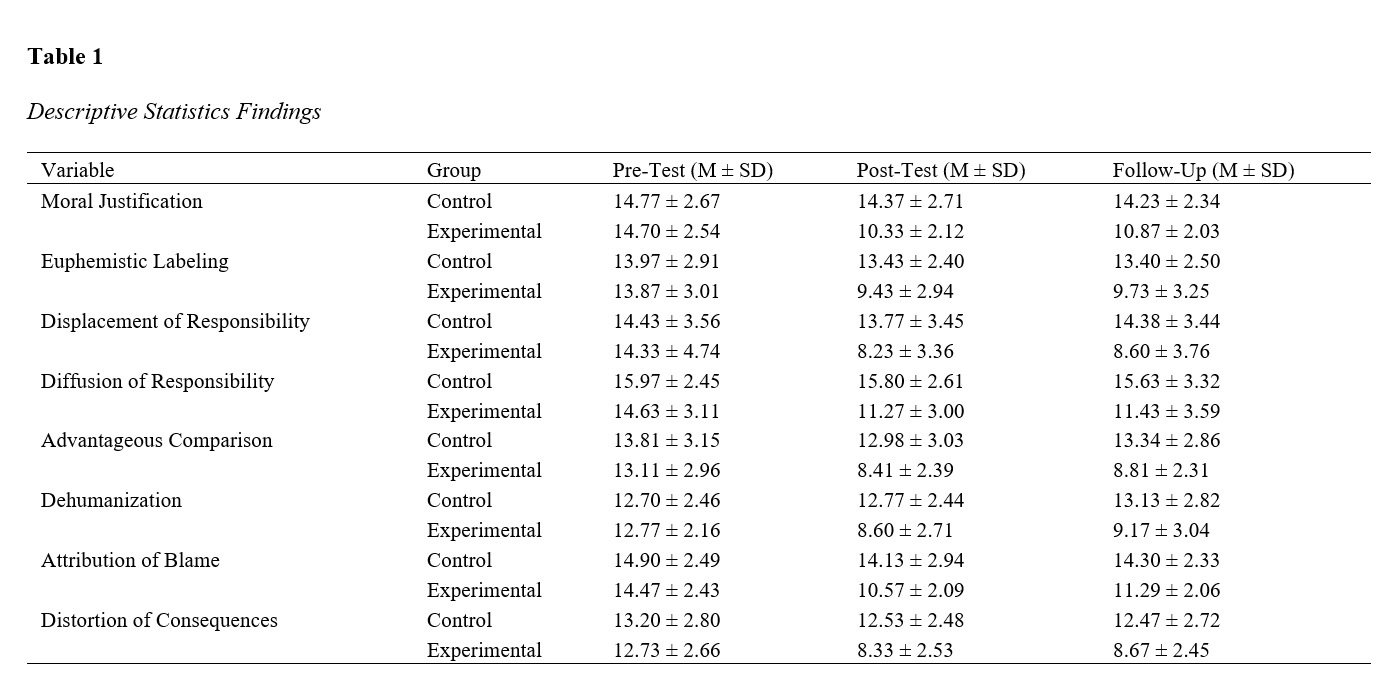The Effectiveness of Schema Mode Therapy on Agreeableness and Moral Disengagement in Individuals with Narcissistic Personality Disorder
Keywords:
Schema Mode Therapy, Narcissistic Personality Disorder, Agreeableness, Moral Disengagement, Early Maladaptive SchemasAbstract
This study aimed to investigate the effectiveness of Schema Mode Therapy (SMT) in enhancing agreeableness and reducing moral disengagement in individuals with Narcissistic Personality Disorder (NPD). A semi-experimental pre-test, post-test, and follow-up design was used, including experimental (n = 30) and control groups (n = 30). Participants were individuals with NPD who met the inclusion criteria, recruited from counseling centers in Shiraz, Iran. The experimental group underwent 12 weekly sessions of SMT, while the control group received no intervention. Data were collected using the NEO Five-Factor Inventory (agreeableness subscale), the Narcissistic Personality Inventory, and the Moral Disengagement Scale. Statistical analyses included repeated measures ANOVA and Bonferroni post-hoc tests to evaluate the intervention’s effectiveness. The results showed significant improvements in the experimental group compared to the control group. SMT significantly increased agreeableness (mean difference = -3.089, p = 0.035) and reduced moral disengagement across all components, including moral justification, euphemistic labeling, and attribution of blame (p < 0.001 for all). These improvements were maintained in the follow-up phase, indicating the intervention's sustained effects. The control group showed no significant changes across any of the measured variables. The findings suggest that SMT is an effective therapeutic approach for improving interpersonal functioning and ethical reasoning in individuals with NPD. By targeting maladaptive schema modes and promoting the healthy adult mode, SMT enhances agreeableness and reduces moral disengagement, addressing critical deficits in NPD. These results underscore the potential of SMT in clinical practice and highlight the need for further research on its long-term effects and broader applications.
Downloads

Downloads
Additional Files
Published
Submitted
Revised
Accepted
Issue
Section
Categories
License
Copyright (c) 2025 Mohamad Gholami (Author); Alireza Maredpour (Corresponding Author); Ghader Zadehbagheri (Author)

This work is licensed under a Creative Commons Attribution-NonCommercial 4.0 International License.







